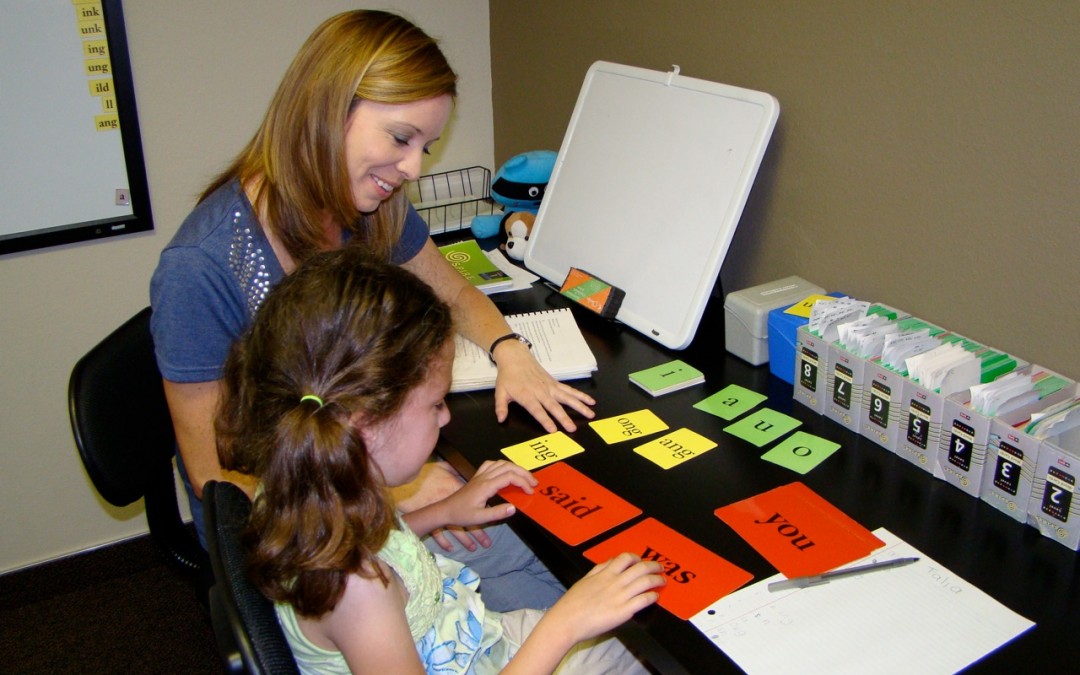
by PRIDE Reading Program Admin | Jan 24, 2016 | A PRIDE Post, Nutrition
By Jeanne Peters RD
Research has proven that for the most part, great brains are made, they are not born. From birth to age 5, up to 30 IQ points are up for grabs. Children may be born with the genetic potential to have a higher than average IQ, but if they are not properly nurtured and nourished during the first few years of life, they will not achieve their full potential. So here are a few proven points for nourishing a smart, calm child:
1. Feed your toddler to teen an optimal diet to enhance brain growth. Even a slight deficiency in a key vitamin, minerals like magnesium, or healthy omega fats during the time when the brain is going through its spectacular growth spurt can result in a lower IQ, poor test scores or depression. Any child with ADD or ADHD should be tested for iron/iodine and zinc deficiencies to rule out nutrition as part of the issue.
2. Add healthy fats into the diet, daily! The brain is 60% or more fat by weight. This indicates the great need the brain has to be fed healthy fats — not the kind of fats found in gold fish crackers or cream cheese on your child’s bagel, but fats found in fish or fish oils, whole eggs or flax seed meal that you can easily sneak into oatmeal or a smoothie as a part of your “stealth nutrition” plan.
3. Add in quality protein at every meal, especially breakfast: This is the nutrient that is critical for increasing the neurotransmitter norepinephrine, which allows the mind to focus. A child cannot learn on cheerios or a pop tart for breakfast. Instead, try a glass of kefir smoothie or egg on toast.
4. Add in one new vegetable and fruit serving per day: Research indicates that one third of children under two years of age eat no fruit or vegetables. More than 60 percent of 1-year-olds eat dessert or candy daily, and 30 to 40 percent of children aged 15 months or older have a sugary fruit drink daily. Empty calories are replacing the nutrient-dense foods children need to feed a healthy brain. Look at your own diet and determine if you are role modeling healthy eating for your children. If you or your children could use a tune-up, consider an appointment with a Registered Dietitian.
Learn more about the New PRIDE Reading Program
________________________________________________________________________________________________
Jeanne Peters RD is co-founder and Nutrition Director for the Nourishing Wellness Medical Center in Torrance, CA. She has over 25 years experience of promoting healthy, sustainable food and lifestyle choices as a Registered Dietitian, Certified Wellness Coach and, most importantly, as a mother of three boys & grandmother of three toddlers. Awarded the California Young Dietitian of the Year in 1995, her passion is sharing ways to nourish healthy families through real wholesome foods! Visit her website at www.nourishingwellness.com

by PRIDE Reading Program Admin | Jan 19, 2016 | Summer Programs
PRIDE Learning Center announces that it will be opening a summer location in Beverly Hill, California.
PRIDE Learning Center, which specializes in tutoring students with learning disabilities and special needs, will provide instruction this summer at a Seasonal Learning Center in Beverly Hills, located at the Chabad Center, 409 Foothill Road, Beverly Hills, Ca 90210.
Summer instruction for children will be available 9:00am – 12:00pm Monday – Friday from June – August.
This summer program in Beverly Hills is designed for children of all ages who are struggling with reading, writing and comprehension due to the diagnosis of dyslexia, auditory and visual processing disorder, speech and language delays and other learning difficulties. The PRIDE Learning Center program is based on Orton-Gillingham research, which uses the multisensory elements of seeing, hearing, touching and moving.
“The Beverly Hills Learning Center is an extension of our Orange County Learning Centers which allows more families in the Beverly Hills community to get the help they need for their children,” states Karina Richland owner of PRIDE Learning Centers. “Our goal at PRIDE, as it has been at all of our locations, is to deliver the highest level of instruction possible and help every child out there, even those that many teachers have given up on.”
“PRIDE Learning Center has helped so many students learn how to read,” says May Dabbah, Director of the Beverly Hills Seasonal Learning Center. “I see students improve dramatically in just one summer. I am so excited for the Beverly Hills Community to experience and be a part of our wonderful program.”
Individuals interested in summer instruction can call (949) 484-0230 or email info@pridelearningcenter.com

by PRIDE Reading Program Admin | Jan 18, 2016 | A PRIDE Post, ADHD, Executive Functioning Skills
By Valerie Maxwell Ph.D.
What does the Factors of Attention mean? The area of the brain known as the pre-frontal cortex takes responsibility for the “executive functioning” of the brain. This is the “thinking brain” which must make decisions, keep track of time, assimilate what is being told, seen or taught, and organize information with prioritization in order to be processed by the brain. This is how we “think about our thinking” so we can function efficiently in the world. Efficiency in our lives helps to create happiness in ourselves and respect from others.
In order to fulfill these executive functions, the brain must have accurate input. Paying attention to what is seen, heard, touched, smelled, and tasted is the way the brain receives this input. According to experts (Reid Lyon) there are 5 parts of paying attention:
- FOCUSED OR SELECTIVE ATTENTION: We need to be able to select the most important information and to ignore the input that is not needed at that time. For example, listening to the teacher’s directions and ignoring a friend kicking your chair is vital to success.
- SUSTAINING ATTENTION: Maintaining awareness is essential to helping us focus on our goal or task. Sustained attention is critical to completing the job, whether that is homework or cleaning your room.
- SHIFTING ATTENTION: Flexibility of attention is key to our ability to change, to grow, and to multitask so that we get everything done that we need to do. Playing Nintendo for 20 minutes and then getting back to the homework is not possible without this flexibility.
- ATTENTION FOR ACTION: We need to be able to route the input to the appropriate brain sites in order to put all the information together so that it comes out at the right time, in the right order, and in socially appropriate ways. This function involves SEQUENCING and PROCESSING the information.
- DIVIDED ATTENTION: Being able to attend to several things at the same time without getting distracted is key to keeping all the balls in the air that modern life demands of us. The child must remember his study-buddy’s phone number, focus on his internet project, and listen with acknowledgement to his mother asking him to call his father in for dinner.
“Although there is a solid core of scientific evidence indicating that speaking and listening have a biological foundation, the human capacity for reading and writing does not.” (Maureen Argus, The ADHD Challenge, March/April 2000). In order for a child to speak, read, listen to the teachers, or write, that child must have developed the ability to pay attention in all ways. Children with ADHD and many with learning disabilities related to cognitive deficiencies have attentional problems. Without proper attention, reading and writing cannot be assumed.
There are 5 senses (i.e., hearing, vision, touch, smell, and taste) that need to be in attention at all times. However, most often in school the child must rely on her ability to hear and see. When we talk about a child’s auditory or visual processing skills, we are talking about a child’s ability to use all of the above 5 attention functions in order to understand, think critically, and to produce results. This is processing.
Getting all the input out (whether it’s on paper or in an oral report) is not enough. The output must be in the right order. This is sequencing.
Learn more about the New PRIDE Reading Program
________________________________________________________________________________________
Dr. Valerie Maxwell is a clinical Psychologist in Manhattan Beach, CA and a frequent speaker at CHADD meetings in Southern California.

by PRIDE Reading Program Admin | Jan 8, 2016 | PRIDE Sherman Oaks
PRIDE Learning Center announces the opening of its seasonal location in Sherman Oaks, California.
PRIDE Learning Center, which specializes in tutoring students with learning disabilities and special needs, will provide instruction this summer at a Seasonal Learning Center in Sherman Oaks, located at the Sherman Oaks Chabad Center on 14960 Ventura Blvd, Sherman Oaks, CA 91403.
Summer instruction for children will be available 9:00am – 12:00pm Monday – Friday from June – August.
This summer program is designed for children of all ages who are struggling with reading, writing and comprehension due to the diagnosis of dyslexia, auditory and visual processing disorder, autism, speech delays and other learning difficulties. The PRIDE Learning Center program is based on Orton-Gillingham research, which uses the multisensory elements of seeing, hearing, touching and moving.
“The Sherman Oaks Learning Center is an extension of our Orange County Learning Centers which allows more families in the Sherman Oaks community to get the help they need for their children,” states Karina Richland, Owner of PRIDE Learning Centers. “Our goal at PRIDE, as it has been at all of our locations, is to deliver the highest level of instruction possible and help every child out there, even those that many teachers have given up on.”
“PRIDE Learning Center has helped so many students learn how to read,” says May Dabbah, Director of the Sherman Oaks Seasonal Learning Center. “I see students improve dramatically in just one summer. I am so excited for the Sherman Oaks Community to experience and be a part of our wonderful program.”
Individuals interested in summer instruction can call (866) 774-3342 or email info@pridelearningcenter.com

by PRIDE Reading Program Admin | Jan 3, 2016 | A PRIDE Post, Auditory Processing Disorder
Having strong language skills is very important in school. Students who have auditory processing disorder have weaker language skills compared to others of their age and can therefore have serious problems as students. Even though individuals with auditory processing disorder are intelligent in other important ways, students with language disorders are apt to find school especially difficult and sometimes frustrating and embarrassing.
Kinds of problems that students with Auditory Processing face:
- Vocabulary:
Students with auditory processing are sometimes slower at learning, understanding and using new words.
- Comprehending spoken language: Some students with auditory processing feel that the teacher is speaking much too fast. They start getting mixed up or confused when a teacher gives them complicated instructions or explanations.
- Reading: Individuals with auditory processing disorder might find themselves falling far behind in their reading skills. In the beginning grades, these children might have trouble sounding out or identifying individual words because of poor phonemic awareness and phonological processing skills. Others might understand the sounds but have troubles remembering them. As the grades get higher, these students often have more and more difficulty with understanding or remembering what was read which hinders their reading comprehension skills.
- Communicating ideas in words: Sometimes students with auditory processing skills have a strong vocabulary but have difficulties recalling, finding and using the right words quickly when they need them. This hinders their abilities to participate in classroom discussions or makes them nervous when they are called upon in class. Many times these students have excellent ideas but difficulties expressing them in language.
- Writing and Spelling: Students who have difficulties expressing their ideas out loud often also struggle expressing themselves on paper. Compositions, book reports, essays and stories are a huge obstacle of them. Because these kids don’t have a strong sense of the sounds of the language, they will struggle in spelling. They won’t apply spelling rules, usually spelling the words exactly as they look.
What can be done about Auditory Processing Disorder?
Get Help from Teachers:
- A teacher needs to be informed that the student does indeed have an auditory processing disorder and how this might affect the student’s classroom performance.
- The teacher dealing with a student with auditory processing needs to be flexible in their approach, so that they can find a method that suits the child, rather than expecting that all students will learn in the same way.
- The teacher can be cautious not to talk too quickly or in sentences that are too long or complicated.
- The teacher can give the student some visuals and illustrations on what is being said.
- Most often, the student with auditory processing needs to sit in the very front of the class so that he or she can listen and focus on the language better.
- The teacher can also give the student extra time for a response when asked a question, or focus more on yes and no questions for these students.
Get Outside Professional Help:
Students with Auditory Processing Disorders will need extra outside the school help with reading, writing, and spelling. The tutor who does this should be knowledgeable and experienced in working with students with learning disabilities and trained in a reputable multisensory Orton-Gillingham reading, writing, spelling ad comprehension program.
Many students with Auditory Processing benefit greatly when working together with a speech and language therapist. Speech Therapists have been specially trained to work with individuals who are having difficulties understanding or communicating. Both the tutor and the speech therapist can work side by side and also help the classroom teacher understand auditory processing and the student’s language difficulties.
Don’t Give Up!
Students that have Auditory Processing Deficits should never get discouraged. Most of these students do improve as they go through school. However, there might be some students who fall behind in school because of their language problems. It is easy for these kids to get discouraged and give up. When this happens their academic skills end up further behind those of kids who get a lot of practice through schoolwork. Work hard and stay motivated. Get outside help and stay positive.
_________________________________________________________________________

Karina Richland, M.A. is the Founder and Director of PRIDE Learning Centers, located in Los Angeles and Orange County. Ms. Richland is a certified reading and learning disability specialist. Ms. Richland speaks frequently to parents, teachers, and professionals on learning differences, and writes for several journals and publications. You can reach her by email at karina@pridelearningcenter.com or visit the PRIDE Learning Center website at: www.pridelearningcenter.com






